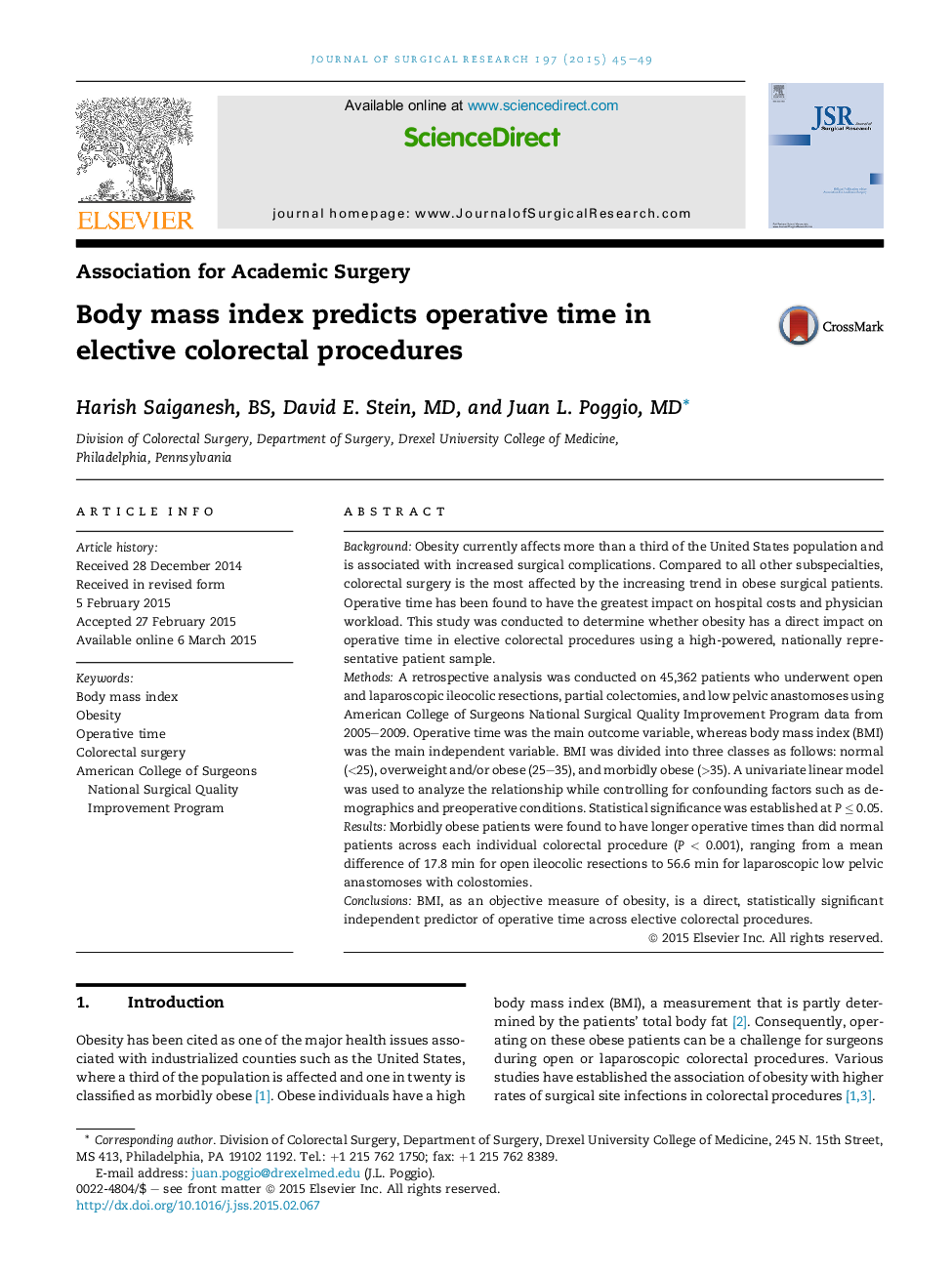| Article ID | Journal | Published Year | Pages | File Type |
|---|---|---|---|---|
| 4299791 | Journal of Surgical Research | 2015 | 5 Pages |
BackgroundObesity currently affects more than a third of the United States population and is associated with increased surgical complications. Compared to all other subspecialties, colorectal surgery is the most affected by the increasing trend in obese surgical patients. Operative time has been found to have the greatest impact on hospital costs and physician workload. This study was conducted to determine whether obesity has a direct impact on operative time in elective colorectal procedures using a high-powered, nationally representative patient sample.MethodsA retrospective analysis was conducted on 45,362 patients who underwent open and laparoscopic ileocolic resections, partial colectomies, and low pelvic anastomoses using American College of Surgeons National Surgical Quality Improvement Program data from 2005–2009. Operative time was the main outcome variable, whereas body mass index (BMI) was the main independent variable. BMI was divided into three classes as follows: normal (<25), overweight and/or obese (25–35), and morbidly obese (>35). A univariate linear model was used to analyze the relationship while controlling for confounding factors such as demographics and preoperative conditions. Statistical significance was established at P ≤ 0.05.ResultsMorbidly obese patients were found to have longer operative times than did normal patients across each individual colorectal procedure (P < 0.001), ranging from a mean difference of 17.8 min for open ileocolic resections to 56.6 min for laparoscopic low pelvic anastomoses with colostomies.ConclusionsBMI, as an objective measure of obesity, is a direct, statistically significant independent predictor of operative time across elective colorectal procedures.
